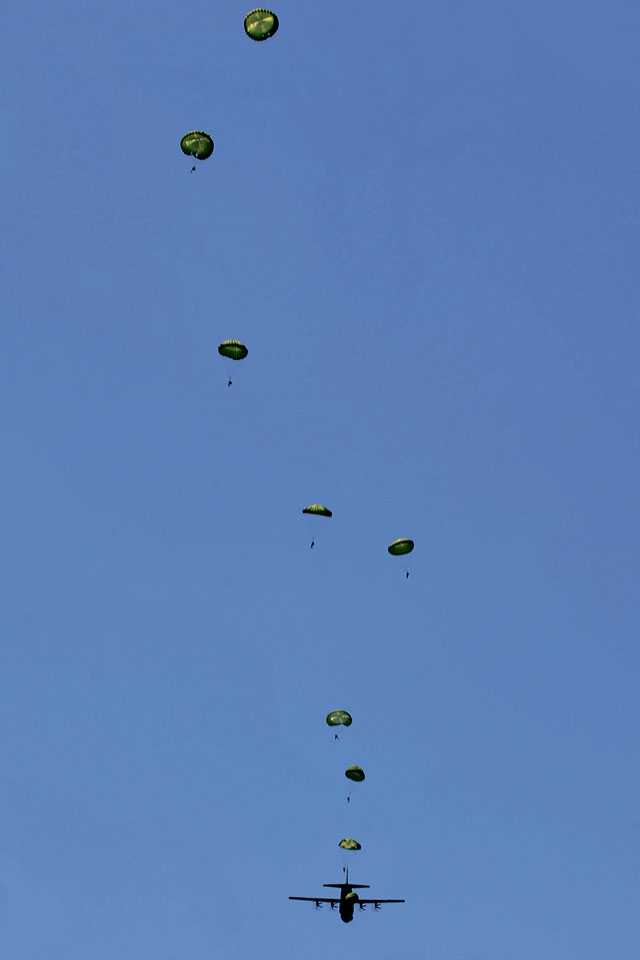
PLOVDIV, Bulgaria — More than 600 Airmen from the 86th Airlift and 435th Air Ground Operations wings and members of the Bulgarian armed forces participated in a two-week flying training deployment called Thracian Summer, July 7 through 21.
Thracian Summer was an opportunity for the militaries of both nations to train together and strengthen partnerships. Training in Bulgaria also gave members of Team Ramstein the opportunity to get training they don’t normally get in Germany.
“Bulgarian airspace allows us to fly in various terrains at low altitudes and practice solid formation flying,” said Maj. Jon Cato, 37th Airlift Squadron pilot. “In other places, whether in Germany or in the U.S., there’s a lot of restrictions to the airspace that aren’t present here.”
Training with the Bulgarians allowed both nations to fulfill training requirements that benefit each other.
“This is the fifth time in the last four years we’ve been able to do this training. It’s very important training for us,” said Bulgarian Col. Iavor Mateev, Ministry of Defense paratrooper. “This training gives our special forces and conventional paratroopers the chance to practice day and night jumps.”
“The training we’re doing here is essential and improves the working relationship between NATO, U.S. Air Forces in Europe and Air Forces Africa, and the U.S. government,” Cato said. “We come and help the Bulgarians with their jump training and it builds a relationship as well as strengthens their participation with NATO.”
Members of the 435th Contingency Response Group facilitated jump training for the Bulgarian paratroopers during Thracian Summer.
“It’s all about building partnership capacity, showing them our standards and learning about how they do business,” said Master Sgt. Stephen Nelson, 435th CRG contingency air traffic controller. “We’ve learned how to use each other’s parachutes and exchanged jump wings. The training has been great.”
In addition to the training opportunities, the two-week deployment provided an opportunity to enhance the existing partnership between the U.S. and Bulgaria.
“The big picture for Thracian Summer was to get training we don’t normally get to do,” Cato said. “But during this training, we did get the opportunity to make friends with our Bulgarian counterparts. They’ve been great hosts to us. We look forward to continuing … relationship between our nations.”


